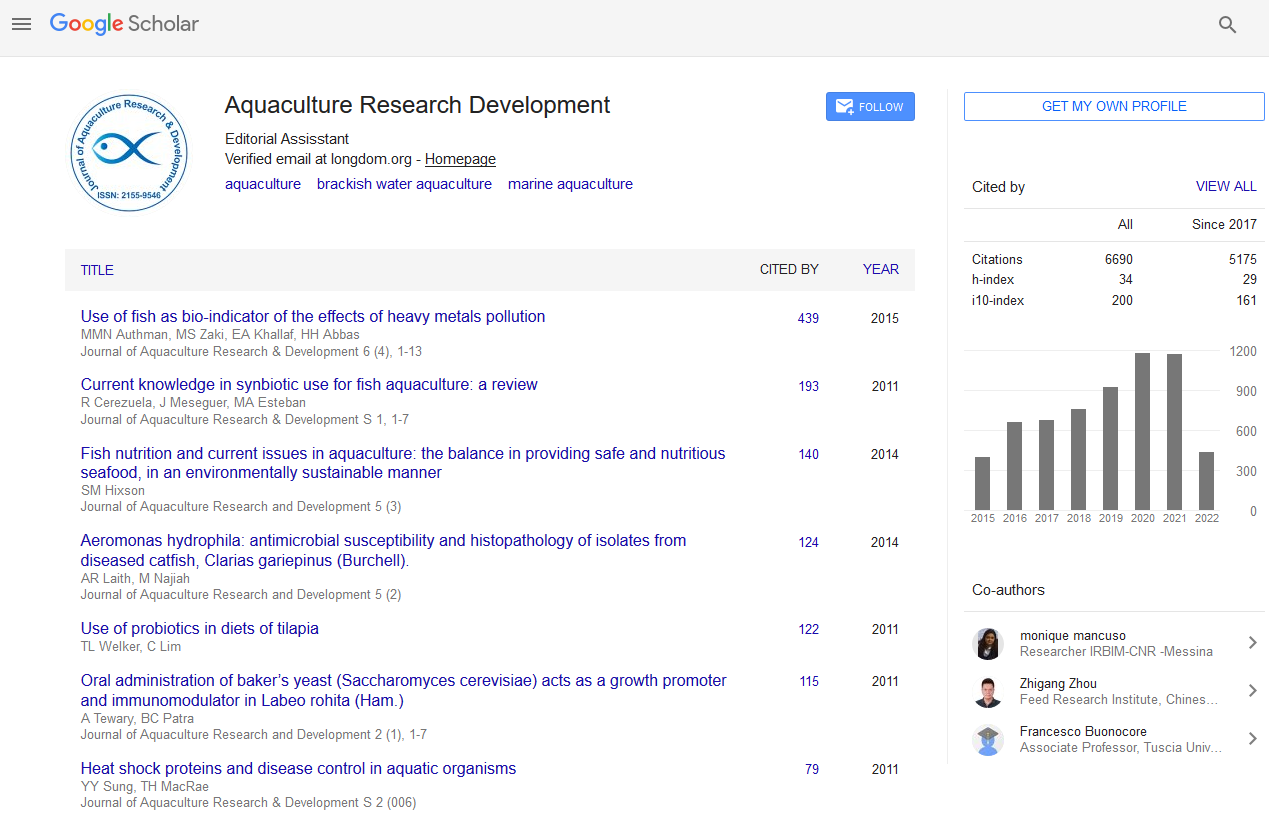PMC/PubMed Indexed Articles
Indexed In
- Online Access to Research in the Environment (OARE)
- Open J Gate
- Genamics JournalSeek
- JournalTOCs
- Scimago
- Ulrich's Periodicals Directory
- Access to Global Online Research in Agriculture (AGORA)
- Electronic Journals Library
- Centre for Agriculture and Biosciences International (CABI)
- RefSeek
- Directory of Research Journal Indexing (DRJI)
- Hamdard University
- EBSCO A-Z
- OCLC- WorldCat
- Scholarsteer
- SWB online catalog
- Virtual Library of Biology (vifabio)
- Publons
- MIAR
- University Grants Commission
- Euro Pub
- Google Scholar
Useful Links
Share This Page
Journal Flyer

Open Access Journals
- Agri and Aquaculture
- Biochemistry
- Bioinformatics & Systems Biology
- Business & Management
- Chemistry
- Clinical Sciences
- Engineering
- Food & Nutrition
- General Science
- Genetics & Molecular Biology
- Immunology & Microbiology
- Medical Sciences
- Neuroscience & Psychology
- Nursing & Health Care
- Pharmaceutical Sciences
Abstract
Effect of Origanum vulgare, Eugenia aromatica and Cinnamomum zeylanicum Essential Oils as Welfare Promoters in Gilthead Seabream during Slaughter
Panagiotaki Panagiota*, Ntantali Olga, Karatzinos Theodoros, Antoniou Zoe and Fleris Georgios
The potential of three essential oils, Origanum vulgare, Eugenia aromatica and Cinnamomum zeylanicum as slaughter anaesthetic agents, is presently assessed. Commercial stunning methods inducing rapid unconsciousness in fish before slaughtering, is urgently required. For now there is no acceptable method that can ensure kill fish humanely and all the commercially used methods of slaughter for farmed fish include a prolonged period of consciousness. Four slaughtering methods were applied, over-dose of four anaesthetics (three essential oils Origanum vulgare, Eugenia aromatica, Cinnamomum zeylanicum and 2-phenoxyethanol), asphyxia, bleeding and immersion in ice-water, in gilthead seabream (Sparus aurata L.). Asphyxia, considered inhumane, but solely used in all wild fish, is also being assessed in Atlantic horse mackerel (Trachurus trachurus L.). Plasma cortisol and DNA fragmentation were measured as indicators, to assess stress response and genotoxicity of essential oils. Overdose of all examined essential oils, proved to induce less stress in comparison to asphyxia, bleeding and immersion in ice-water. O. vulgare, E. aromatica and C. zeylanicum demonstrated higher efficiency in blocking plasma cortisol response to stress in gilthead seabream and lower genotoxic effect, compared to other slaughtering techniques. Asphyxia was confirmed as very stressful slaughtering method in both experimental and wild fish.
Published Date: 2020-02-17; Received Date: 2020-01-13


